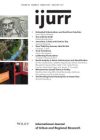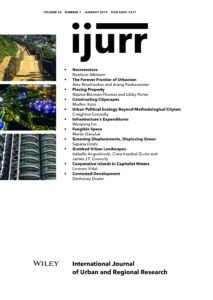Improving the habitat of residents in central‐city neighbourhoods without simultaneously gentrifying these is becoming a pressing dilemma in right‐to‐housing and right‐to‐the‐city agendas, both in the global North and the global South. This article explores what possibilities limited‐equity housing cooperativism can bring to the table. Insights are drawn from two urban ‘renewal’ processes in which limited‐equity housing cooperatives have played an important role: in Vesterbro (Copenhagen) and Ciudad Vieja (Montevideo). The article analyses the everyday politics within and around these cooperatives through a broader institutional and political‐economy lens. This approach sheds light on mechanisms of inclusion and exclusion that operate within these cooperatives, as well as on the processes through which they have been directly and indirectly implicated in the displacement of low‐income neighbours. Despite providing a grassroots housing alternative for local ‘non‐owners’, individual cooperatives participate in, and are vulnerable to, urban transformations that traverse multiple scales. They are inserted, moreover, within wide‐ranging unequal social structures that the cooperative’s formal equality has limited tools to offset. The ways in which cooperatives interlink as a sector and how this sector relates to the state are two key dimensions to be considered in challenging capitalist‐space economies.

